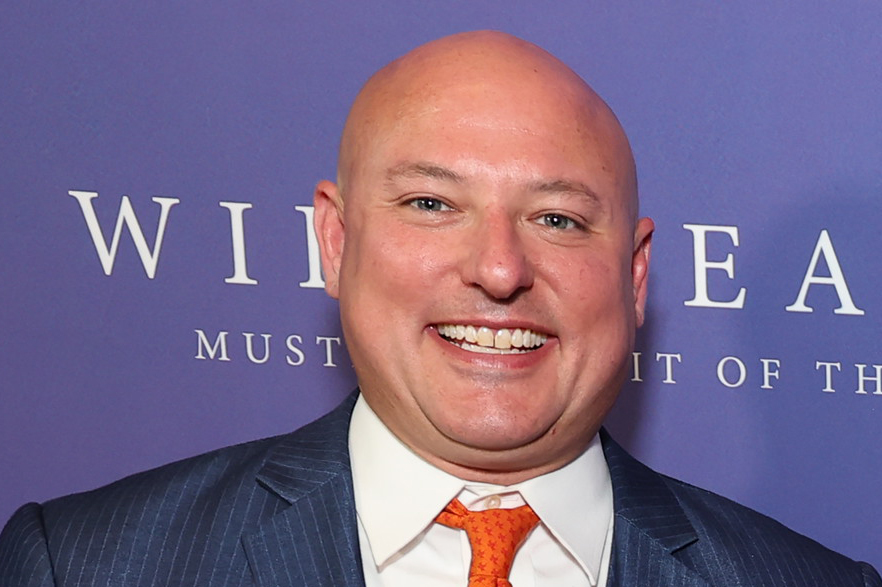The world’s bestselling author is a forty-three-year-old mom you probably haven’t heard of. In fact, unless you’re an extremely online fiction reader between the ages of sixteen and twenty-four, Hoover is likely to be a bit of an unknown quantity.
It’s hard to see how she can stay that way: with 1.1 million followers on TikTok — her fans call themselves her CoHort — Hoover is the platform’s most popular author. As a result of her #BookTok fame, “CoHo” is now the second most followed author on Goodreads; while most authors have a single book on the bestseller list, Hoover dominates with multiple books at a time. In late January this year, her books held three of the top five spots on the New York Times bestseller list.
Hoover boomed to fame in 2021, nine years after she self-published her first book Slammed, a “young adult” (YA) novel which became a bestseller within a year. She was big on YouTube’s BookTube and on “Bookstagram” before #BookTok came along. But Hoover’s defied the odds; not only did she make it onto the bestseller list without the help of traditional publishing, she did it while working as a social worker in Texas. Her rise to bestselling author from working-class roots captivated the media, who’ve argued the isolation of Covid lockdowns helped readers connect with the subject matter of her tearjerkers and steamy romances — which, they suggest, helped people “feel alive” amid a pandemic that left them lonely and emotionally burned out.
Hoover’s success is extremely important at a time when publishing is being criticized for classist gatekeeping that prevents working-class writers from even getting a foot in the door. Hoover not only found a way past the gatekeepers; she’s sold over 20 million books in the process — leaving the industry in her dust.
“If you like reading novels in Kenya, Colleen Hoover is a name you must have heard,” says Bennet Owuonda, the sales and marketing manager for Kenya’s online Nuria bookshop. “She can take an everyday story and turn into something extraordinary,” he adds.
What are the books about? According to an article in the New York Times, Hoover has written “romances, a steamy psychological thriller, a ghost story, harrowing novels about domestic violence, drug abuse, homelessness and poverty.”
Owuonda points out that this universality meshes perfectly with TikTok’s desire for authentic and relatable influencers. Book critic Laura Miller agrees. “Throughout her career she’s been very good at promoting her books on social media, but there’s just certain ways her books suit the style of TikTok, like Instagram is more lifestyle-y, and I don’t think she’s as well-suited to that. TikTok allows people to connect with her views more,” says Miller.
Hoover’s #BookTok fan base is so immense that it even inspired one of her novels, It Starts with Us, which Hoover says she wrote specifically for her fans. It makes perfect sense: #ColleenHoover has more than 2.4 billion views on TikTok, and many of the videos invoking her involve powerful displays of emotion — young girls sobbing in their cars, shaking, screaming, pressing her vividly-colored paperbacks against their hearts. Readers say the videos have allowed them to connect with other fans in a postpandemic world. But the most salient feature of her work? Characters who express their emotions more fully than most people on the internet are able to do.
But the buzz around Hoover isn’t always positive. Miller, who wrote a column on Hoover’s popularity that described her books as the “everything bagels of popular fiction,” is one of the few who are mostly neutral on the subject. Everyone else seems to hold a very strong opinion: they either love Hoover or hate her.
It Ends with Us (a sort of sequel to It Starts with Us), is her most popular book, and also the one that has produced some of the most extreme reactions, with some calling it resonant for survivors of abuse and others who accuse her of glamorizing trauma. Incidents of abuse and emotional upheaval are often used as storytelling devices in Hoover’s books, and they don’t go unnoticed. One of her #BookTok critics described her work as “trauma porn.”
Hoover has said frequently that her goal is to allow people to feel validated through her writing. But no matter how you feel about her emotive style, no matter how dismissive some of her critics, there is absolutely no doubt that she’s made a huge impact on popular literature. “There’s something adolescent about the belief that trauma automatically makes a person interesting or deep… Hoover’s characterization needs all the help it can get to make her heroes and heroines seem more than generic,” says Miller. “Often the only distinguishing traits they possess are their traumas: past abuse, burn scars, the death of a child (or children), a conviction for manslaughter in the accidental death of a former lover, a loveless childhood.”
Her critics make valid points but rejecting Hoover entirely has long ceased to be an option. #BookTok has allowed young women to reclaim genres — romance and YA, in particular — that are often disregarded and mocked. It’s also one of the few online spaces where young women have turned their love of Colleen Hoover into a publishing sensation that now outsells everyone from Stephen King to the Bible — which she beat by three million copies last year.
This article was originally published in The Spectator’s March 2023 World edition.

























